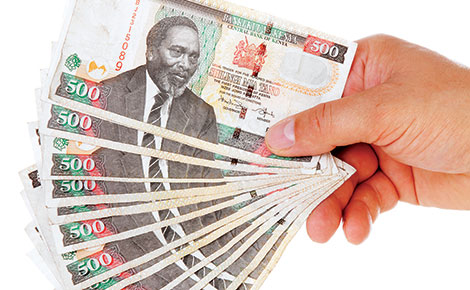×
The Standard e-Paper
Fearless, Trusted News
 |
| The shilling has been on the back foot and has fallen nearly 2 per cent against the dollar since January. [PHOTO: Courtesy] |
NAIROBI, KENYA: The shilling lost ground against the dollar yesterday, after companies bought the US currency to avoid excessive exposure to the shilling over concerns about how the Government would fund its new national Budget.
At the opening of trade, the shilling was quoted at 87.90/88.00 to the dollar, weaker from Wednesday’s close of 87.70/80.